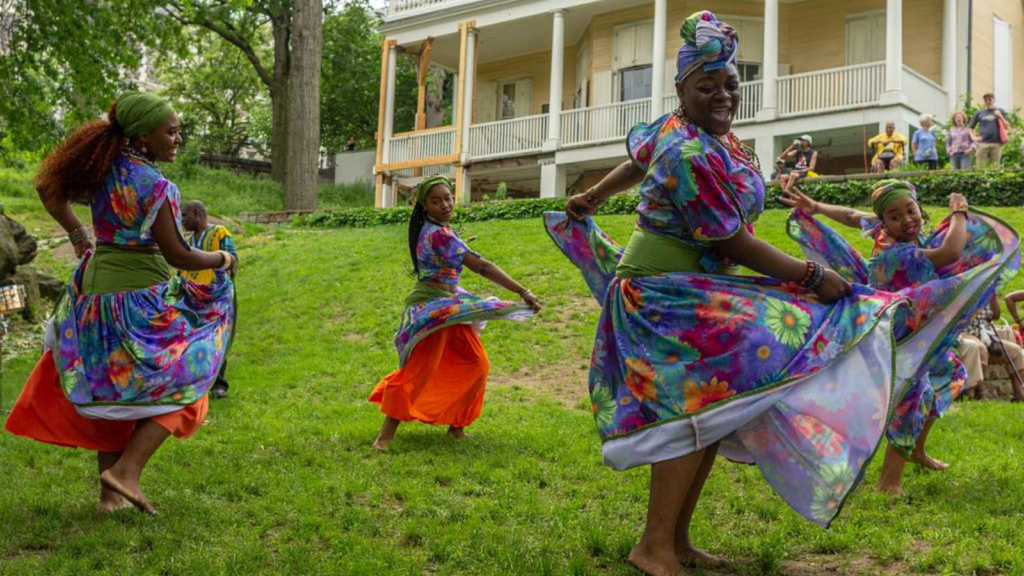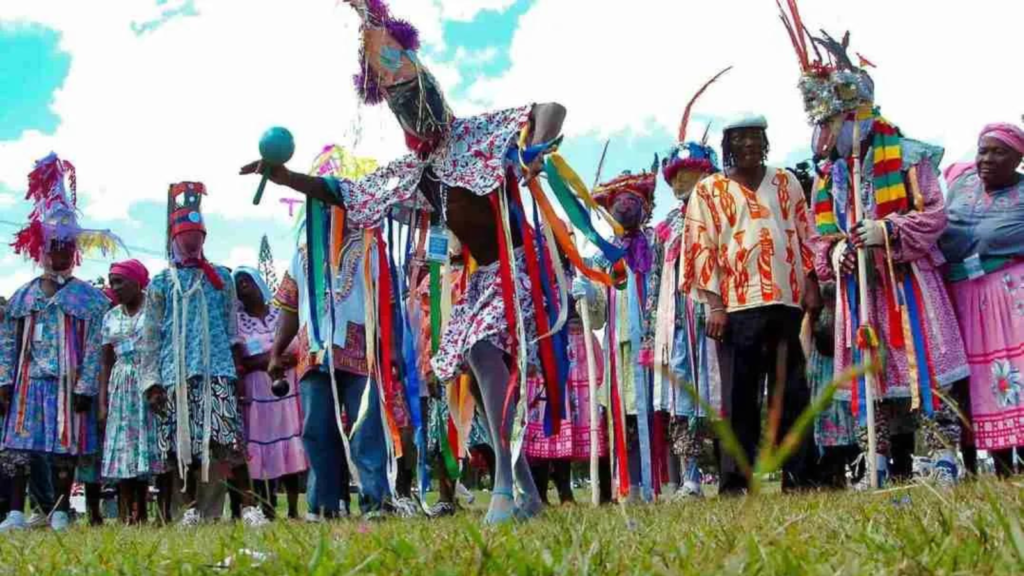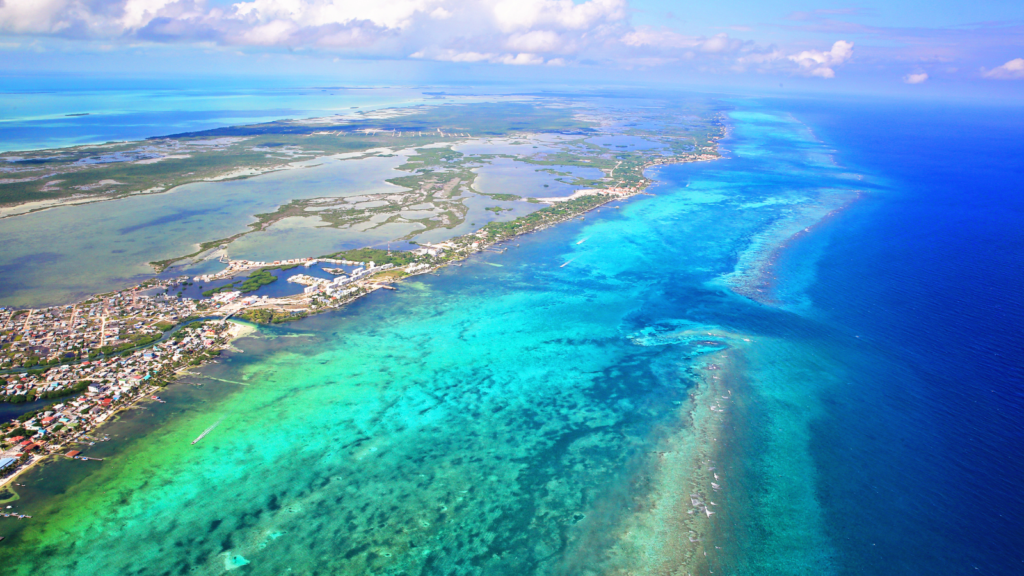The battle between the rapidly changing environment as a result of climate change and indigenous people continues daily, with little to no time for adaptation. However, in tiny Belize, education is seen as a powerful tool to combat the challenges they encounter every day.
Climate change is significantly impacting indigenous peoples in Belize, a small Central American/Caribbean country that is not much larger than the US state of Massachusetts. The Garinagu people in Belize live mostly in coastal communities. These communities continue to battle rapid coastal erosion caused by rising sea levels, threatening their livelihoods, homes, and traditions.
A report from the Caribbean Community Climate Change Centre headquartered in Belize confirmed that the southern coastline is severely affected by erosion. The report explained that the loss of the beachfront is occurring at an alarming rate. The coastal communities of Hopkins and Dangriga are at the forefront of climate change.
The March 2019 preliminary assessment of coastal erosion in both communities showed that the shoreline has retreated by about 20–25 feet over the past seven years.
President of the National Garifuna Council of Belize, Sheena Zuniga, says, “It is a major concern because in our communities we have lost more coastline. I know, specifically in Barranco, we had a red cliff that is no longer there because of erosion. We’ve tried many ways to assist with the problems, to put boulders and sandbags. But the thing with erosion that we realised [is that] when you try to do preventative methods after the fact, it’s harder for us to save our lands.”

Environmental changes threaten traditional ways of life
Zuniga adds that with the changes in the environment, the traditional means of survival are also threatened.
With the coastline crumbling and aggressive erosion eating away at land, indigenous people are forced to find new lands to cultivate their food. Species of fish consumed by generations of indigenous people are no longer available or are either too small, she adds.
Not only are rapid erosion and rising sea levels threatening Belize, Zuniga said climate patterns have changed, and this too has impacted farming schedules.
“When you plant at a specific time of the year, for instance, cassava, you realise that it’s raining more when you’re done, used to be, hot and sunny, So we have instances where our cassava fields are flooded. So we have to study the whole new cycle and do different testing to see what can be done,” she says.
During the podcast episode with Global Yardie host Dainlyn Swaby of the Young People for Action on Climate Change, Zuniga shared the challenges that Garifuna people in Belize continue to face because of climate change.
Globally, the livelihoods of over 300 million indigenous people are affected by climate change, as Swaby points out. Climate change is a major concern for the Garifuna people of Belize.
In responding to climate impacts, the Garifuna people also embrace new methods of adaptation with support from the government and NGOs.

Mainstreaming education
According to Zungia, mainstreaming climate education is a key priority, as is building conservation skills, as Swaby highlights in the podcast.
Zuniga, who is also the Chair of the Belize Indigenous Council Board (BENIC), stressed, “The Garifuna members within that community, we want for them to be educated on the importance of climate change, how it affects the communities, how it affects us on conservation, and on the importance for us to conserve what we currently have within our protected areas.”
In their education efforts, Zuniga explained they have taught mapping of communities and comparing what is lost, training villagers to be stewards of conservation and co-managers of protected areas, and educating community members on how to respond to conservation.
“We’re going to be incorporating conservation within the National Garifuna Council because we feel like we are the best towards protecting our protected areas within our communities. Since we were raised there, we know its history. We know its importance, and we also depend on the resources from our protected areas, so the current project is just coming onstream. So it’s a lot of work, but we look forward to that.”
As they up their efforts to respond to climate impacts among farmers, the indigenous leaders stressed they are collaborating with the Ministry of Agriculture to implement innovative measures.
They have engaged in teaching greenhouse technology to farmers to allow them to cultivate traditional and staple crops. Through the collaboration, farmers from different communities have been able to benefit from seedlings and were educated on how to prepare the seedlings and monitor the growth cycle of the crops.
Knowledge sharing for resilience building
The knowledge they gain is shared with different communities to replicate the gardening project.
The National Garifuna Council, as the podcast host pointed out, has collaborated with the Global Environment Facility (GEF) Small Grants Programme and government ministries to develop an awareness campaign to address culture loss and recognise Garifuna rights regarding their land and sea resources.
Moreover, it was related that the Belizean Agriculture Ministry has been supportive of the adaptation efforts and is always willing to share new climate-smart ideas with the indigenous people.
“One of the ways that they’ve dealt with it is, they try to practise reforestation. When they would cut down a tree, they would replant a tree, and we, also try to create sandbags to try to have a barrier or a boundary, to try to rebuild back their sea lines. Those are just certain things that they’ve tried to incorporate into the community. They try to plant more in their area or in their homes to do home gardening projects to try to help the situation,” Swaby explained.
Swaby disclosed that they have engaged in sharing information on climate change and erosion with the Garifuna communities.
Recently, there were efforts afoot to tackle the replanting of mangroves, which act as a buffer between land and ferocious waves. The project allowed the community to see firsthand how they can lessen the effect of erosion on their vulnerable coastline.

Climate justice for the Garifuna
Swaby was keen to highlight that Indigenous people are seen as the earth’s first eco-warriors, yet they are one of the most marginalised groups regarding environmental governance. In the same breath, she asks, for the Garifuna, what does climate justice mean for their communities?
“Climate justice for our communities here in Belize—I feel like it’s a way for us to have a voice in what happens to our community. What we can do, how we can change. Being a part of the conversation. I feel like, as indigenous people living within that community, we know our lands more than someone coming in to do research, because we’ve had to study them, We study our lands. We’ve had to figure out what works for us, so it’s important for us as a community to be part of that conversation to have our say in what we can do to prevent different things happening within our communities,” Zuniga boldly explains.
She added that it has been a positive difference since indigenous people have been able to have a voice in matters that concern them.
The United Nations regulation for Free Prior and Informed Consent (FPIC) has proven to be beneficial to her people. She notes that with the mandate for indigenous people to be a part of the conversation, they are now included.
Previously, they were not included in key conversations, but recently, she explained, “I do realise lately that a lot of projects that come within Belize [there is a requirement] to include an indigenous people component, so they have to have indigenous people be a part of the consultation process, which is a positive change because it shows that our voices will be heard in whatever decision, whatever project comes into the country.”
Tune in for the full episode ⬇️⬇️⬇️
This story was produced through the collaborative efforts Climate Tracker and Young People for Action on Climate Change, both supported by Open Society Foundation.